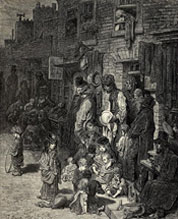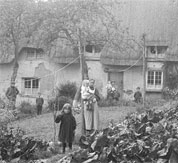In Their Own Write
The lives and letters of the poor in the nineteenth century

Just over a hundred years ago, pioneering social historians John and Barbara Hammond lamented the fact that “the voice of the poor themselves does not come to our ears” (The Village Labourer (London, 1911), 243).
Even as late as the 1970s and '80s, during the golden age of ‘history from below’, the lives of ordinary people were described almost entirely from the archival traces left by official agencies and the memoirs of the rich and powerful: how the poor themselves actually experienced the world, and how they felt about their lives, could only be inferred from the outside.
But now, this model of how we write demotic history is being been challenged by a very special, and previously neglected, historical source: the pauper letter.
Many thousands of petitions and pauper letters were written by, and on behalf of, ordinary men and women during periods of particular hardship under both the Old and New Poor Laws in England and Wales (ca.1601-1900). They functioned as applications for poor relief at a time when the majority of interactions between ordinary people and the representatives of authority were conducted face-to-face. They are therefore semi-official documents, fulfilling a crucial function in the negotiation and allocation of scarce resources before the welfare state.

But they are also full of information about the lives and experiences of those who wrote them, about their struggle to survive and to maintain families in the face of considerable material and personal obstacles.
Pauper letters are helping historians write a new ‘history from below’: they are a fascinating and vital source, not only for the historical insights they offer into the history of welfare before the twentieth century but for the glimpses they offer into past lives which, until now, have remained largely hidden from view.
This website, and the project work it documents, are dedicated to bringing those past lives into the light, and allowing the nineteenth-century poor to tell us about themselves ‘In Their Own Write’!